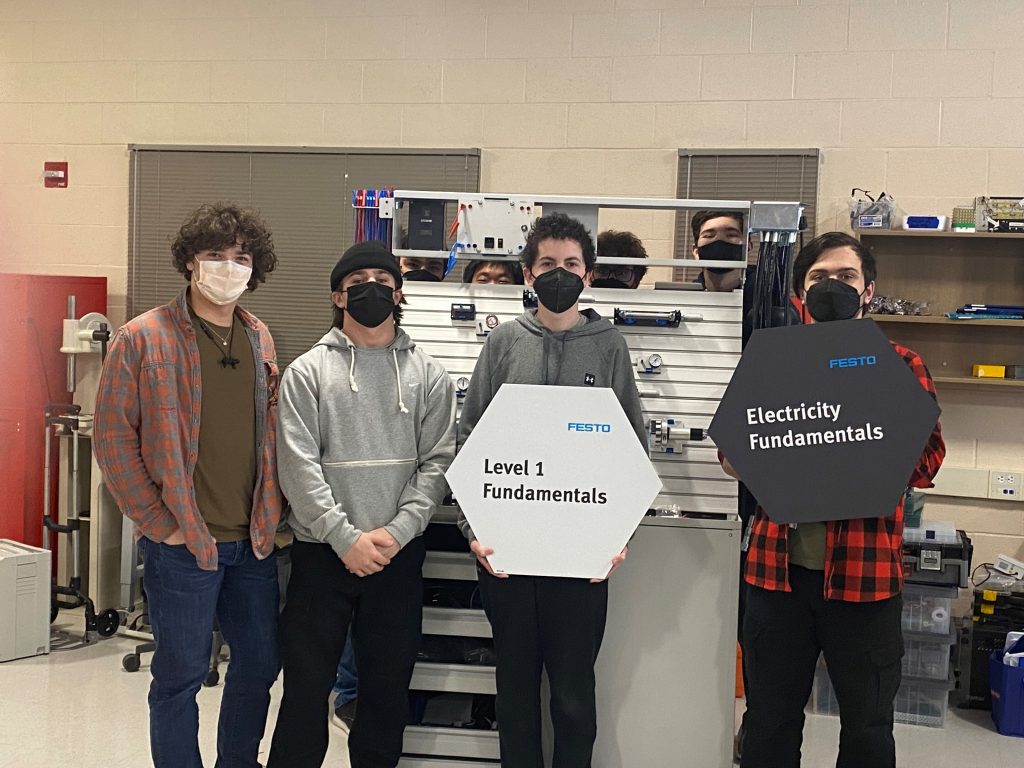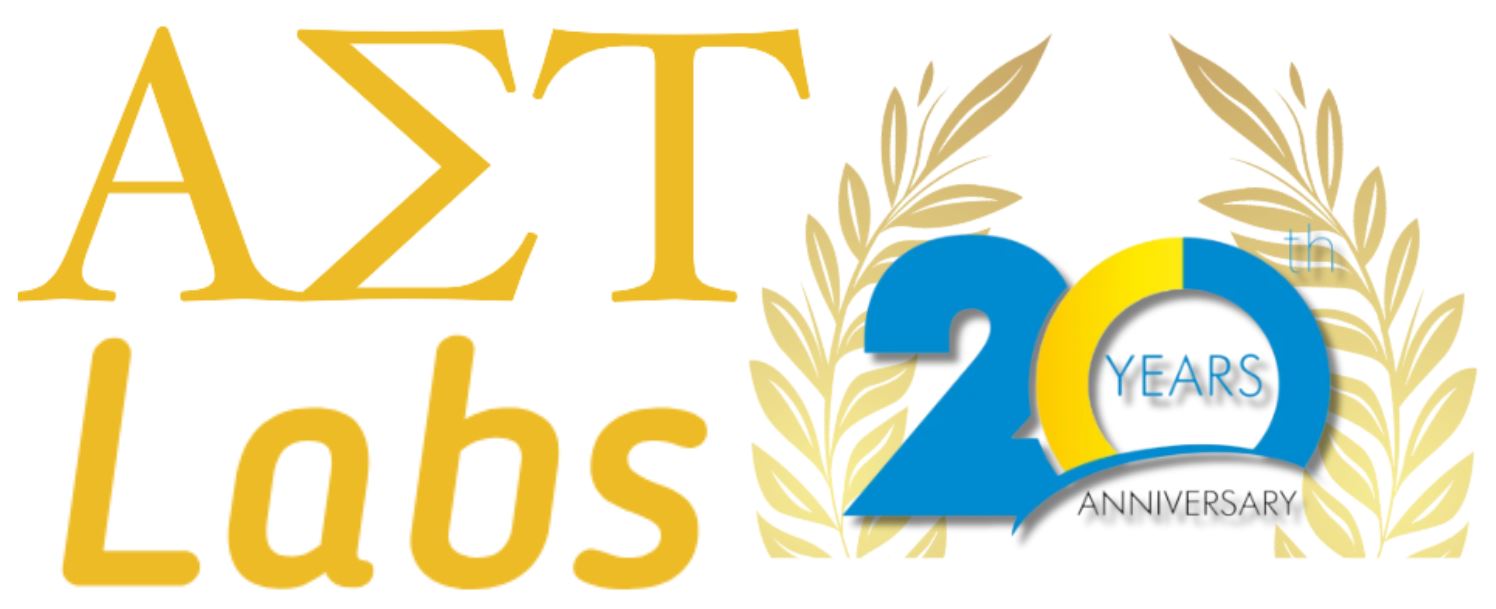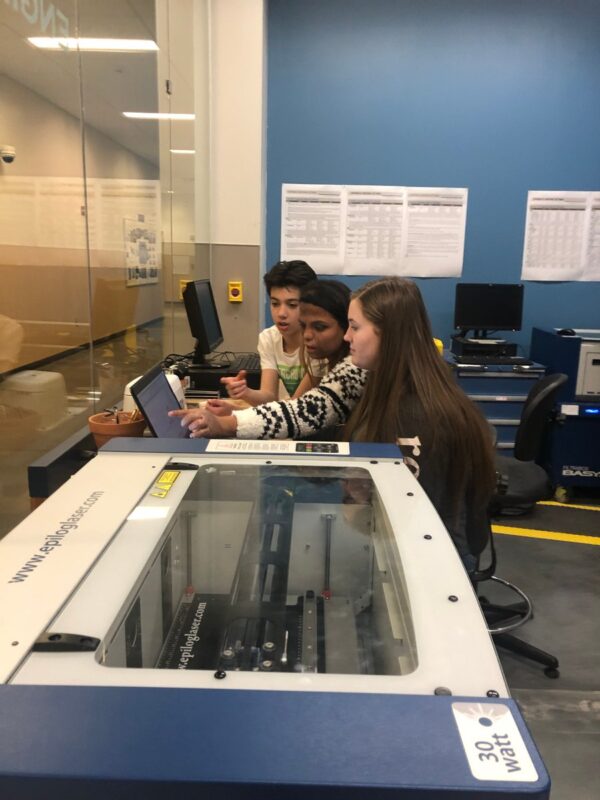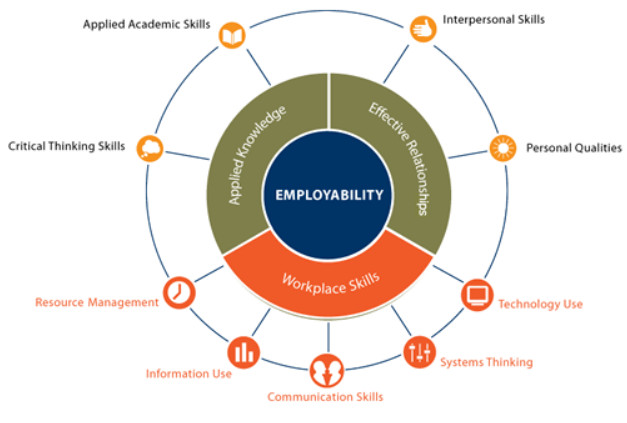CTE programs excel at giving students valuable exposure to industry-relevant equipment and training to build their technical skills for jobs after school. In addition, employability skills are essential in preparing students for the reality of the workplace. At the recent New England CAD-Engineering Teachers Summit, hosted by AET Labs, one topic of the day was the skills employers look for when hiring new graduates. Industry professionals from Massachusetts-based companies gave teachers insights into what non-technical skills are needed in the workplace across varied industries.
Employability Skills vs. Technical Skills. What Are They and Which is More Important?
Employability skills are interpersonal skills that are critical for successful careers. You may also hear them referred to as essential skills, soft skills, or career readiness skills. The U.S. Department of Education has a framework that outlines employability skills students need to be college and career ready:
Employability skills are also represented in state-level CTE frameworks. In Massachusetts, the vocational technical education framework identifies these employability and career readiness skills:
- Career exploration and navigation
- Communication in the workplace
- Work ethic and professionalism
As multiple speakers at the CAD-Engineering Teachers Summit shared, an employer can teach technical skills through training. However, employability skills are more complex to teach through training, especially when new employees need to be onboarded quickly. On the other hand, CTE instructors can teach students vital essential skills over their high school years embedded in many experiences, including classroom time, project-based learning, and apprenticeships.
Why Do Employers Values Employability Skills?
When hiring managers and employers review potential candidates, technical skills are important, but employability skills are often valued more. These skills are more challenging to teach than technical skills in a fast-paced work environment. Employers want new employees that are ready to jump in. For newly graduated students, showcasing skills like effective communication, problem-solving, and critical thinking during the interview process will give them an edge over other candidates. When students become employed, soft skills help them succeed in applying and utilizing their technical skills.
3 Employability Skills Massachusetts Industry Professionals Value
Experienced professionals from Massachusetts companies representing the manufacturing, design, life sciences, and architecture industries joined the New England CAD-Engineering Teachers Summit as speakers. Despite coming from various technical roles and industries, they shared similarities in the skills they recommend employees have to thrive in their careers, whether they are new high school graduates or professionals with decades of experience. Here are three employability skills they value:
Systems Thinking
One of the most common skills talked about by multiple professionals was systems thinking. Joshua Lamontage, Product Market Manager at Festo Automation stated that it is most important for students to understand how things work together. For example, when students go on to work across companies during their careers, the software they use may look different because they see the top-level user interface (UI). But, if they understand what's behind the software and how it works, it will be easy for them to transfer their knowledge across technologies and companies.

Mike LaFleche, Director of Technical Content at OnShape, emphasized the importance of knowing the workflow for how things are made. For example, understanding how an item starts at a CAD design and eventually gets produced at a machine shop.
Nathan Descrochers, Business Development Manager at Universal Robots, talked about collaborative robots and how life sciences and food and beverage companies in Massachusetts use collaborative robots to increase productivity. In turn, the robots allow employees to be more engaged. They are challenged to set up and design the process for what the robots do instead of standing in front of a machine all day.
Collaboration
Many speakers emphasized the importance of being collaborative. In every role, people work with others. Sometimes, they will need to collaborate with people in different positions, like an architect working with engineers and clients. In addition, workplaces are very diverse across age groups and cultural backgrounds. Therefore, students need to collaborate effectively with others to succeed in their jobs.
Lifelong Learning
Interestingly, Greg Joynt, Associate Principal at Kaestle Boos Associates and Ken Warnock, Technology Development Manager at Medtronic, from very different industries, both talked about the importance of lifelong learning. They've worked in their industries for decades, and they shared that the way they work has changed significantly from when they started and will continue to evolve. Technology advancements will always impact how people work, so students must be open to learning after graduation.

Teachers who encourage students to learn in positive environments will help their students tremendously throughout their careers. Students must be curious and open-minded to new perspectives and ways of doing things for jobs that will shift over their careers.
Certifications Help Teach Employability Skills

How can an instructor teach employability skills? Certifications give structure to teaching technical skills relevant to careers while also exposing students to practice employability skills along the way. For example, the Festo Industry 4.0 Certification Program was developed in close collaboration between industry experts and educators and is accredited by NC3. It purposefully teaches students technical skills in automation, robotics, and mechanical systems while also getting students to experience and learn employability skills, including:
- Problem-solving
- Critical thinking
- Lifelong learning
- Systems thinking
- Collaboration
- Communication
We had an amazing time hearing from industry partners at the New England CAD-Engineering Teachers Summit! If you are a New England educator or industry professional who would like to get more involved in helping students benefit our local companies, please get in touch with us! We are passionate about bringing education and industry together.



